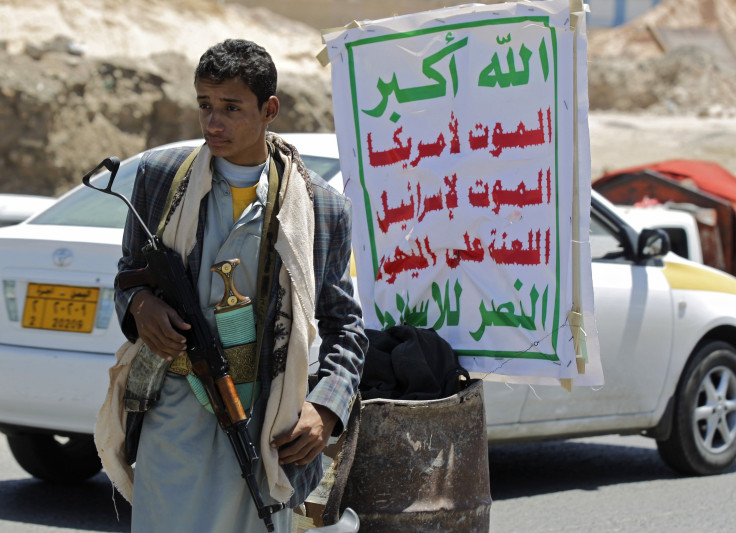Passover 2015: Yemen's Few Remaining Jews Prepare To Celebrate Amid Fears For Their Safety

As Yemen's few remaining Jews proceed with Passover customs this week – preparing to slaughter a lamb for a feast, buying new clothes – a looming fear hangs over them. Their numbers are rapidly dwindling, and for the 70 Jews estimated to remain in Yemen, Passover preparations have been particularly rough this year.
Fiercely anti-Jewish Houthi rebels control Sanaa, the city where most of the Jews live in a walled compound, and government allowances, which ordinarily would help cover the costs of religious traditions for the holiday, have dwindled as Yemen erupts in civil war. “They are scared. The security situation doesn’t protect them,” said Faisal al Khalifi, a rights activist who said he has worked as a lawyer for Yemen’s Jewish community since 2008.
In September 2014, Houthi rebels swept into Sanaa, Yemen’s capital. In February, they seized power, sending President Abed Rabbo Mansour Hadi fleeing south to the port city of Aden. Last month, as the Houthis began pushing south for Aden, a coalition led by Saudi Arabia began carrying out airstrikes against the Houthis, but the rebels nonetheless gained control over one of Aden's central districts Thursday. The United Nations has described the country as being “on the verge of total collapse.”
Yemen’s remaining Jews have not been directly threatened yet by the Houthis, a report in the Times of Israel noted. But they are afraid, especially when posters bearing the Houthi slogan that reads, in part, “Death to Israel, Curses upon the Jews” are displayed publicly.
This year, Passover began Friday evening and ends April 11. The holiday commemorates the liberation of the Jews from Egypt, where they had been enslaved, and their subsequent exodus.
A few years ago, 200 to 300 Jews still lived in Yemen, Reuters reported. Today, about 50 live in a walled government compound known as Tourist City in Sanaa, while roughly 20 remain in Amran province, north of Sanaa. Those living in Tourist City were moved there by the government after fighting erupted in the northern province of Saada in 2009 between Houthis and government forces. Others have fled to Israel.
The remaining few Jews are a far cry from the approximately 45,000 that lived in Yemen before 1949, when Israel airlifted tens of thousands of them in a mass transfer known as Operation Magic Carpet. The first Jews arrived in Yemen more than 2,500 years ago, flourishing as silversmiths and builders.
Now, isolated in Tourist City, Jews in Sanaa live off meager government subsidies, although Khalifi claimed that those allowances, which could be used to buy “holiday accessories,” were not distributed this year “as a result of the political situation and the wars in Yemen.”
Still, amid the instability and violence, Jews in both Sanaa and the province of Amran were expected to gather starting Friday night for a feast after slaughtering, in kosher fashion, a bull or, more likely, a lamb. Later, they would sit together and chew a popular narcotic, qat, and exchange blessings, Khalifi said, and also read from the Torah.
© Copyright IBTimes 2024. All rights reserved.






















